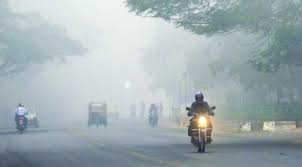Lucknow: The Allahabad High Court on Thursday dismissed BJP leader Rajneesh Singh’s petition to set up a fact-finding committee to probe the history of the Taj Mahal and open the doors of its 22 locked rooms.
The petition seeking to “find the truth” behind the 22 locked rooms in the Taj Mahal was filed last week before the Lucknow bench of the Allahabad High Court by Rajneesh Singh, who is the media in-charge of the BJP’s Ayodhya unit.
The petition cited the claims of some historians and Hindu groups that the mausoleum is actually an old Shiva temple. The petitioner sought the formation of special committee by the Archaeological Survey of India to examine the locked rooms and release the report.
Citing claims by some historians and Hindu groups about the Taj Mahal being an old Shiv Temple, the plea sought the constitution of a fact-finding committee and the submission of a report by the ASI.
The petition has also sought setting aside certain provisions of The Ancient and Historical Monuments and Archaeological Sites and Remains (Declaration of National Importance) Act 1951, and The Ancient Monuments and Archaeological Sites and Remains Act 1958, under which the Taj Mahal, Fatehpur Sikri, Agra Fort, Itimad-ud-Daulah’s tomb were declared historical monuments.
The HC’s order also comes days after BJP MP Diya Kumari claimed that the land on which the Taj Mahal was built originally belonged to the erstwhile Jaipur royal family and was acquired by Mughal emperor Shah Jahan later.
She asserted that records of this are available with the family of Jaipur’s ruler Jai Singh.
The MP had supported the plea in the HC and sought opening of the doors of the monument’s “22 rooms” to see “the truth, whatever it is”.
“It should be investigated what was there before the monument was built and people have the right to know. There are records available with the Jaipur family and it would provide these if required,” said Kumari, who is also a member of the erstwhile Jaipur royal family.
“Compensation was given in lieu of the land but how much was it, whether it was accepted or not, I cannot say this because I have not studied the records which are there in our ‘pothikhana’. But the land belonged to our family and Shah Jahan had acquired it,” she added.
She said that since there was no judiciary, no appeal could have been made at that time. “Things will be clear only after examining the records.”







